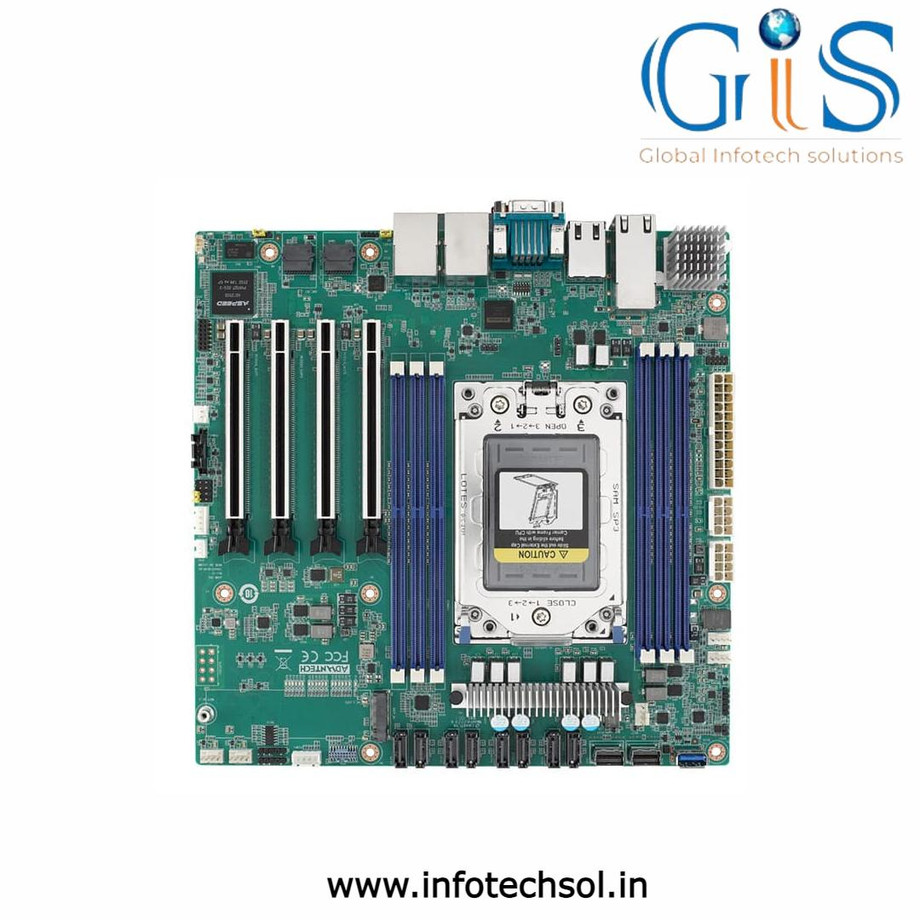Table of Contents
- Introduction
- Understanding Motherboards
- What are Industrial Motherboards?
- What are Consumer Motherboards?
- Key Differences Between Industrial and Consumer Motherboards
- Durability and Longevity
- Environmental Resilience
- Customization and Expandability
- Performance and Reliability
- Regulatory Compliance
6. Advantages of Industrial Motherboards
7. When to Choose an Industrial Motherboard Over a Consumer Motherboard
8. Conclusion
9. FAQ
1. Introduction
Motherboards are the backbone of any computing device, serving as the central hub where all components connect and communicate. While most people are familiar with consumer motherboards found in personal computers, there are also industrial motherboards designed for more demanding applications. In this blog, we will explore the key differences and advantages of industrial motherboards compared to consumer motherboards, with insights from Global Infotech Solutions.
2. Understanding Motherboards
A motherboard is a printed circuit board that connects and allows communication between various components of a computer, such as the CPU, RAM, and storage devices. It includes essential components like the CPU socket, RAM slots, expansion slots, and connectors for peripherals.
3. What are Industrial Motherboards?
Industrial motherboards are designed for use in demanding environments such as manufacturing, healthcare, and transportation. They are built to withstand extreme conditions and provide reliable performance over extended periods.
4. What are Consumer Motherboards?
Consumer motherboards are designed for everyday use in personal computers, gaming rigs, and office setups. They focus on performance, features, and aesthetics suitable for general computing needs.
5. Key Differences Between Industrial and Consumer Motherboards
Durability and Longevity
- Industrial Motherboards: Built with high-quality materials for durability and long lifespan. Typically offer extended warranties.
- Consumer Motherboards: Made with standard materials, designed for regular use. Warranty periods are usually shorter.
Environmental Resilience
- Industrial Motherboards: Can operate in extreme temperatures, high humidity, and vibrations. Ideal for harsh industrial environments.
- Consumer Motherboards: Suitable for stable environments like homes and offices. Not designed for extreme conditions.
Customization and Expandability
- Industrial Motherboards: Highly customizable with various expansion slots and connectivity options tailored for specific industrial needs.
- Consumer Motherboards: Offer standard customization options suitable for gaming and home computing.
Performance and Reliability
- Industrial Motherboards: Engineered for continuous operation with enhanced stability and error detection features.
- Consumer Motherboards: Focus on high performance for gaming and multimedia, with less emphasis on continuous operation.
Regulatory Compliance
- Industrial Motherboards: Comply with strict industrial standards and certifications for safety and reliability.
- Consumer Motherboards: Adhere to general consumer safety standards.
6. Advantages of Industrial Motherboards
- Enhanced Reliability: Designed to perform reliably in demanding environments.
- Longer Lifecycle: Extended product lifecycle reduces maintenance costs.
- Customization: Greater flexibility to meet specific industrial requirements.
- Data Integrity: Improved error detection and correction capabilities.
- Support and Warranty: Better manufacturer support and extended warranties.
7. When to Choose an Industrial Motherboard Over a Consumer Motherboard
Choose an industrial motherboard if you need reliable performance in harsh conditions, extended product lifecycle, and customization for specific industrial applications. Consider consumer motherboards for standard home and office use, where high performance and aesthetics are more important.
8. Conclusion
Understanding the differences between industrial and consumer motherboards is crucial for making the right choice for your computing needs. Industrial motherboards offer enhanced durability, reliability, and customization for demanding applications, while consumer motherboards provide high performance for everyday use. Evaluate your requirements carefully to select the best motherboard for your specific needs.
9. FAQ
Q: What is a motherboard?
A: A motherboard is a central circuit board that connects and allows communication between all components of a computer.
Q: What makes industrial motherboards more durable?
A: Industrial motherboards are built with high-quality materials and designed to withstand extreme conditions, making them more durable than consumer motherboards.
Q: Can I use an industrial motherboard in my gaming PC?
A: While you can, industrial motherboards are over-engineered for gaming purposes. Consumer motherboards are more suited for gaming PCs.
Q: Are industrial motherboards more expensive?
A: Yes, industrial motherboards are typically more expensive due to their enhanced features and durability.
Q: Where can I get more information on motherboards?
A: For more information, you can visit Global Infotech Solutions for expert advice and resources.

